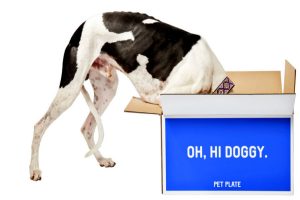Pneumonia in dogs can often be treated effectively and efficiently – provided the disease is detected early. It is essential to know the symptoms to react quickly in an emergency. Find out here which signs should set off alarm bells.

Pneumonia, also known as pneumonia, is an inflammation of the alveoli or the connective tissue of the lungs in both dogs and humans. The bronchi can also be affected. This impairment of the respiratory tract can have a variety of causes, such as bacteria, viruses, parasites and fungi, but can also occur in connection with other diseases.
Symptoms of pneumonia
The symptoms of pneumonia can be just as varied as the causes. A dog suffering from pneumonia is often listless, almost apathetic and lazy. Often the animal also suffers from high fever and is constantly tired.
The main symptom, however, is the cough. Even with a slight cough, you should take your four-legged friend to a veterinarian. A dry cough that initially sounds unsuspicious quickly turns into a wet rattle. Rattling lung noises are added later. If your pet is getting bad breath, the lack of oxygen will also cause problems. A clear sign of this is a blue discolouration of the mucous membranes.
Risks for dogs from pneumonia
If the visit to the vet is delayed for too long, the
the disease can cause severe damage to the lungs. The immune system also weakens in the condition, and the dog becomes more susceptible to further infections. If a circulatory disorder or an embolism causes the inflammation, the disease can even lead to death if left untreated.
Pneumonia in dogs: low risk of infection
There would be no risk of infection for other dogs from a sick animal, even if bacteria or viruses caused pneumonia in the dog concerned. Only weakened animals are more susceptible to pneumonia. This includes old dogs, puppies and chronically ill four-legged friends. Pneumonia is not usually transmissible to humans.
Pneumonia: Classical treatment of sick dogs Homeopathy
For the well-being of your animal, quick action is required in the event of pneumonia. First of all, it is essential to determine the exact cause of the disease. This allows the vet to treat the underlying condition. Once this has been identified, pneumonia can usually be counteracted with antibiotics. After just a few days, the symptoms should subside significantly.
However, do not stop the treatment prematurely, even if your dog seems to be doing better. Otherwise, it may be that the pathogens become immune to the antibiotic and can no longer be easily combated. It then becomes much more difficult to treat your dog. It would help if you usually continued giving antibiotics for a week-long after the symptoms have subsided to cure pneumonia finally.
Pneumonia in dogs: homoeopathy and Co. only as a supplement
Veterinary care can also be supplemented with chamomile humidifiers and plant-based expectorants to make it easier for the animal to breathe. It is best to consult your trusted veterinarian. Although homoeopathy and herbal remedies can alleviate the symptoms, they alone are not suitable for successfully treating pneumonia.








